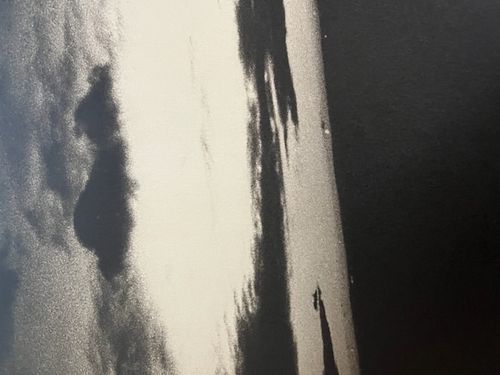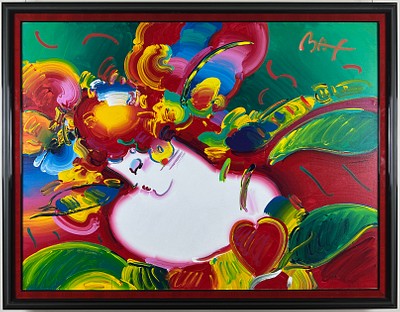Daido Moriyama is a renowned Japanese photographer known for his distinct and gritty black-and-white images capturing urban life and street scenes. He
Lot 91
Categories
Estimate:
$200 - $400
Absentee vs Live bid
Two ways to bid:
- Leave a max absentee bid and the platform will bid on your behalf up to your maximum bid during the live auction.
- Bid live during the auction and your bids will be submitted real-time to the auctioneer.
Bid Increments
| Price | Bid Increment |
|---|---|
| $0 | $5 |
| $100 | $10 |
| $200 | $20 |
| $1,000 | $50 |
| $5,000 | $100 |
| $10,000 | $200 |
About Auction
By Scottsdale Art Exchange
Jul 29, 2023
Set Reminder
2023-07-29 12:00:00
2023-07-29 12:00:00
America/New_York
Bidsquare
Bidsquare : Our Annual Midsummers Day Auction
https://www.bidsquare.com/auctions/scottsdale-art-exchange/our-annual-midsummers-day-auction-13196
This auction will feature 900 amazing items. The Auction will include 300 items for our fine art gallery and over 600 items from our consignment partners. Scottsdale Art Exchange sue@firerockfineart.com
This auction will feature 900 amazing items. The Auction will include 300 items for our fine art gallery and over 600 items from our consignment partners. Scottsdale Art Exchange sue@firerockfineart.com
- Lot Description
Daido Moriyama is a renowned Japanese photographer known for his distinct and gritty black-and-white images capturing urban life and street scenes. He was born on October 10, 1938, in Ikeda, Osaka, Japan, and is considered one of the most influential photographers of the post-war era. Moriyama emerged in the 1960s during the Provoke movement, a Japanese photography movement that sought to challenge conventional notions of photography and explore new forms of expression. His work embodies the movement's experimental and confrontational spirit, pushing the boundaries of photography as an art form. Moriyama's photography often features blurred, grainy, and high-contrast images that reflect the raw and chaotic nature of the city. He frequently captures the energy, contradictions, and isolation of urban environments, presenting a fragmented and subjective view of reality. His subject matter ranges from anonymous faces in the crowd and seedy nightlife scenes to everyday objects and abstract forms found in the urban landscape. Moriyama's images are marked by their spontaneity and a sense of voyeurism, as if he is capturing fleeting moments and hidden aspects of urban life. Throughout his career, Moriyama has published numerous photobooks, which have become highly regarded for their visual impact and groundbreaking style. Some of his notable works include "Japan: A Photo Theater" (1968), "Farewell Photography" (1972), and "Tales of Tono" (2012). Daido Moriyama's photographs have been exhibited worldwide and are held in prestigious collections. He has received several awards and honors for his contributions to photography, including the Infinity Award for Lifetime Achievement from the International Center of Photography in 2019. Moriyama's work continues to inspire and influence photographers globally, and his unique visual language has left an indelible mark on the field of contemporary photography. His captivating and provocative images invite viewers to experience the complexity and beauty found within the urban landscape.
Measures 6.26 x 9.5
Verso is blank.
Mounted to archival quality paper.Good condition. No rips, tears, creases.Condition
- Payment & Auction Policies
-
Available payment options
-
-
- Buyer's Premium



 EUR
EUR CAD
CAD AUD
AUD GBP
GBP MXN
MXN HKD
HKD CNY
CNY MYR
MYR SEK
SEK SGD
SGD CHF
CHF THB
THB
























